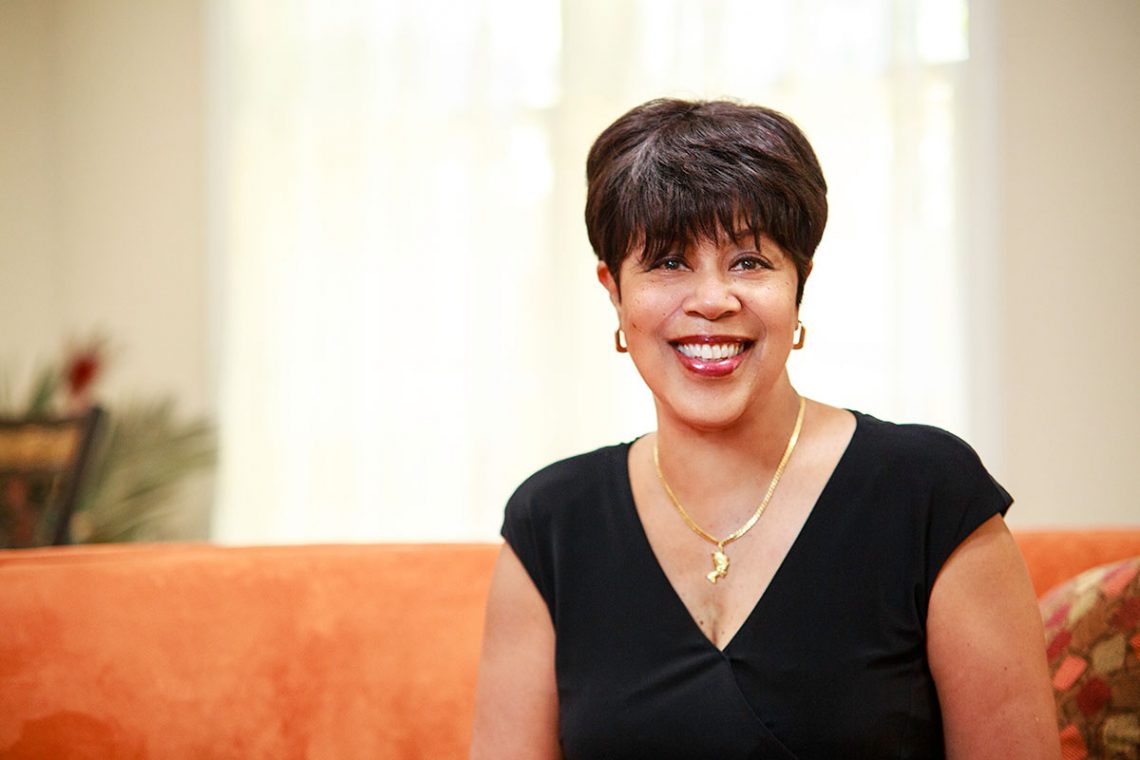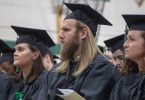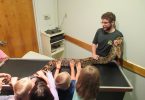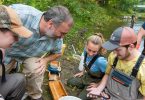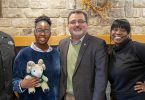Unity College Risk Taker
The next time you think about how different Unity College is from most four-year private colleges, think about how true that must have been for Amelia James-Charles in 1967.
A 1966 graduate of New York City parochial schools, James-Charles ‘71 was the first African-American woman to ever enroll at what is now America’s Environmental College.
Now a retired nurse with two children who splits her time between New York City and Mapleton, Ga., James-Charles said she can see how far her education has propelled her. And she’s been keeping up with how far the school has come since its founding days.
“They are taking steps toward keeping the planet healthy ” she said. “Although I’m a retired nurse, I’m into health and what’s good for the good of all, not just for the one.”
“In my community growing up, there was fluid used in dry cleaning that they were putting in barrels and burying in the ground down the block from where I lived,” she recalled. “I lived on a dead-end block, at the end of the block was the woods. And that’s where these barrels of fluid were buried. Over time, the barrels rusted out and the chemicals seeped into the ground, contaminating the water where we lived. We didn’t find out till later on. But I noticed that many of the people who lived in that community died with cancer. And cancer wasn’t so prevalent back in that time. I remember these environmental dangers in my neighborhood and I am proud of the direction Unity College has taken.”
“I would tell family and friends if they are interested in helping themselves help the planet then Unity is the place for them,” James-Charles said.
Culture change
James-Charles said that, for a black girl from New York City, coming to rural Maine for the first time to attend college was a little daunting.
“When I arrived, I remember being picked up in Waterville,” James-Charles said. “When I reached the college, I was like, where’s the college? Where’s the rest of the college? I saw a house, the chicken coop and a schoolhouse, and I couldn’t believe that was it. I was thinking, What did I get myself into?”
“When I took my husband up there for the 25th [reunion], he said, ‘I could see why you went, but I can’t see why you stayed.’ But many of the students were from New York and there was camaraderie. Everyone looked out for each other in Unity, and that’s why I stayed.”
“I thought I’d probably be the first to integrate the Unity Institute, but there were already a couple black men that were here. (One of them) interestingly was a friend who went to school with the man who became my husband. I remember people are very friendly and nice in Unity, though I often got a second look from children who had never seen a dark-skinned person before. I didn’t encounter any bad feeling, bad vibes, no name calling. I know who I am, what I am, and was proud of who I turned out to be. I had no problem with that. I was sporting my Afro. Wore my natural hair, and I didn’t have any problem. If someone was going to New York and I needed a ride, I got a ride. We were close, there was a spirit of camaraderie.”
With personal advice from President Clair Wood, James-Charles thrived at Unity.
“He told me, ‘Ms. James, get a C or better and you will do fine.’ I was awarded the Grace B. Simmons Award, and [a news outlet on] Long Island published an article about my adventure. My mother was just ecstatic! She was able to take that article and show her coworkers on the job. She and my father gave me such a time about being home and now they wanted to show off my successful adventure.”
As a work-study student in the campus library, “I always really looked forward to seeing Ms. [Dot] Quimby,” she said. “I wanted to be at the desk, but Ms. Quimby had other plans for me. … They fell in love with my handwriting.”
Risk taker
But James-Charles probably never would have arrived on Quaker Hill, just as Unity College was being born, had it not been for a dedicated mother, an avid interest in education, and the DNA of a risk taker.
Amelia graduated Bishop Edmund J. Reilly High School in 1966, then spent a year working while enrolled in a junior college at night.
“My mother was the one who promoted education in our household,” she said. “She pushed education on all of us. Things were getting a little tough at home and I was ready to move. [Laughs]. So my mother mentioned about Unity College, I think she saw it in the paper, they were advertising in New York for students. So that’s how I made my way up there.”
She arrived in September 1967, sight unseen. At the time, the school had a total enrollment of approximately 200 students. Unity, at that time, wasn’t an environmental college. “It was liberal arts and sciences when I went there,” James-Charles said. “It was so new it wasn’t even accredited.”
“Same with nursing school,” she said, which she attended after Unity. “It got its accreditation after I left. So I’ve been lucky that way.”
We’d call her a risk-taker but she sees her venture to Unity as just a natural step for someone growing up and moving on.
“At the time, you look at your life at this point in time, and you ask, what do I want to do, where do I want to be, and move forward, you know? And that’s how it was.”
We hope to see Amelia James-Charles back on campus soon, or perhaps for her 50th reunion in 2021!
